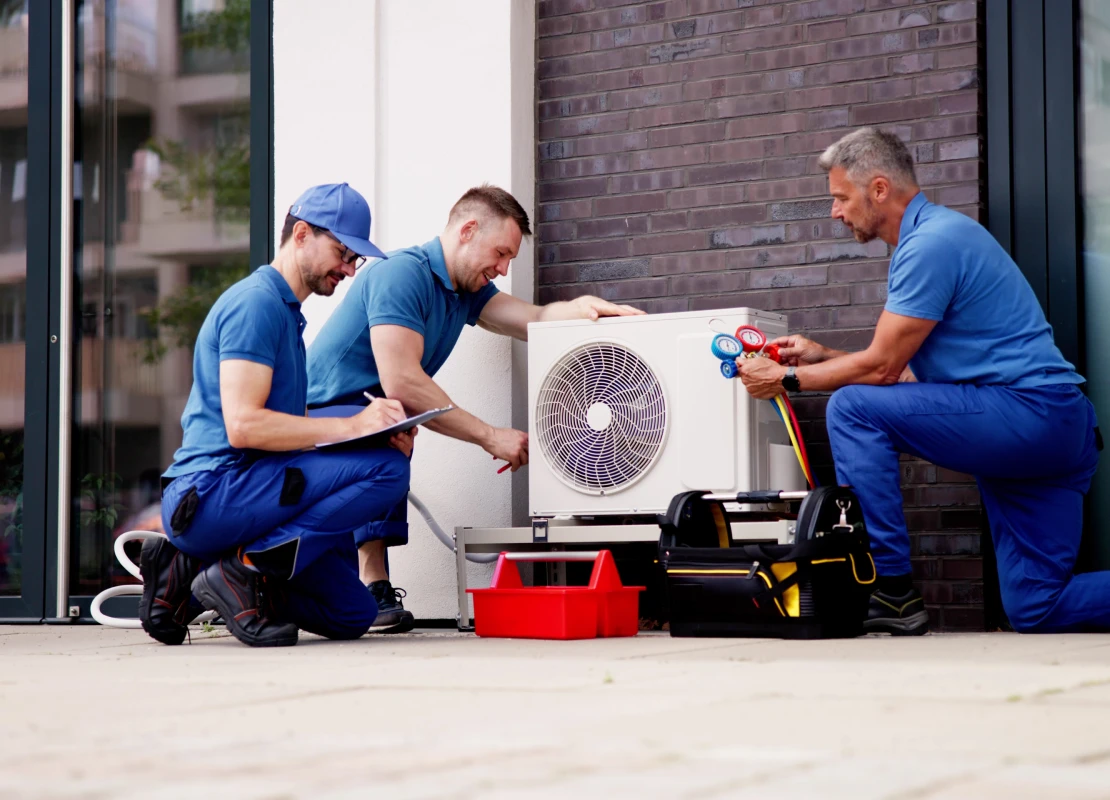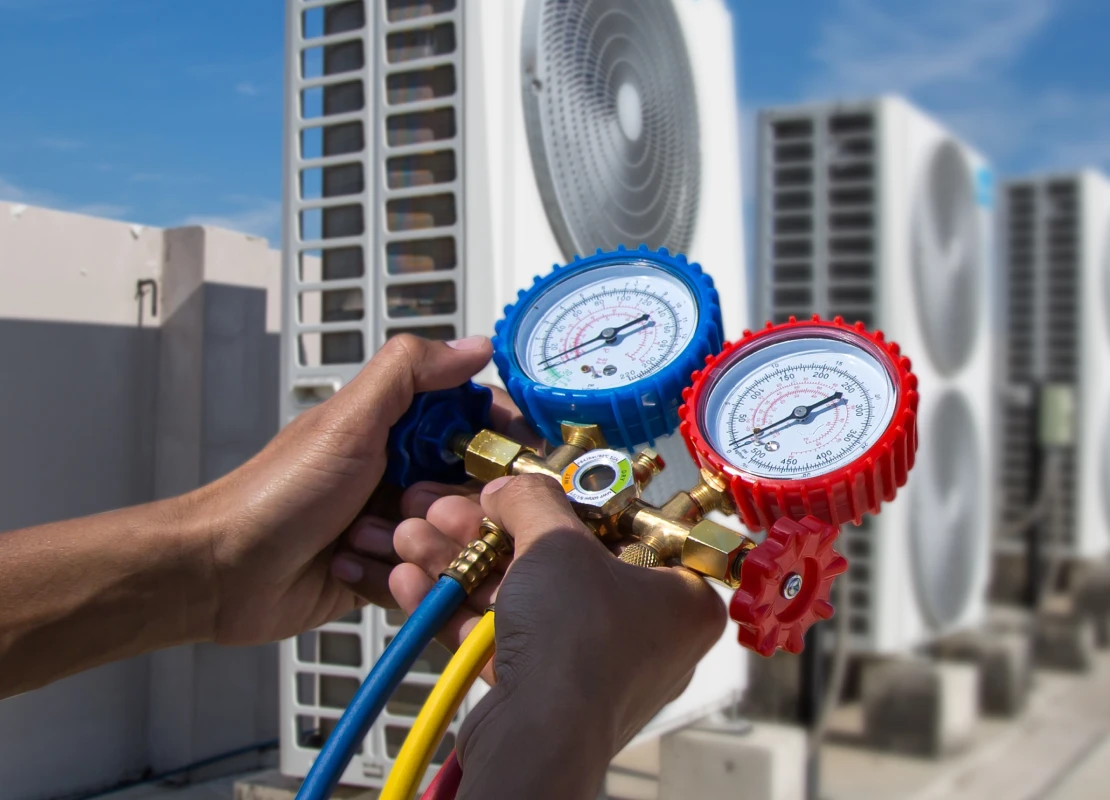Insurance for HVAC Technicians in New Jersey

Comprehensive Protection for Your HVAC Business
HVAC technicians in New Jersey face daily risks—from electrical hazards to property damage and personal injury. Whether installing systems or performing maintenance, the job often involves physical labor, specialized tools, and exposure to unpredictable conditions. Without proper insurance, even a minor incident can result in costly claims or legal issues that threaten your livelihood.
Insurance coverage is not just required by law; it’s a vital layer of protection for your business, your employees, and your reputation. LG provides insurance products for service contractors, including HVAC technicians, plumbers, electricians, and land and hardscape companies.
Get a QuoteUnderstanding the Importance of HVAC Insurance
Insurance is more than just protection—it’s a cornerstone of operating a legitimate, secure HVAC business in New Jersey. It shields you from financial loss if something goes wrong on the job, whether it’s a client injury, equipment damage, or a legal dispute over your work. For technicians who work in clients’ homes or businesses, even a small mishap can lead to lawsuits or out-of-pocket expenses. With proper coverage, you can continue operating without disruption, meet state licensing requirements, and demonstrate professionalism to your clients. Simply put, insurance helps you manage risk, comply with regulations, and build a trustworthy brand in a competitive field.
Mandatory Insurance Requirements for New Jersey HVAC Technicians
Before an HVAC technician can legally operate in New Jersey, certain insurance coverage is required by state law. These foundational policies ensure that technicians are protected financially and that clients, employees, and the public are safeguarded from potential harm or damage caused by business activities.
Get a Quote
General Liability Insurance
General liability insurance is fundamental for any HVAC technician. It covers third-party claims of bodily injury, property damage, and personal injury resulting from your business operations. In New Jersey, HVAC contractors are required to carry a minimum of $500,000 in general liability coverage as part of their licensing requirements.
For example, if a technician accidentally causes water damage to a customer’s home while installing a new air conditioning system, this policy will cover the associated repair costs and legal fees. It also helps ensure client confidence, as many customers and commercial contracts demand proof of liability insurance before allowing work to begin.
Surety Bond
New Jersey law requires HVACR contractors to secure a $3,000 surety bond as part of the licensing process. This bond is a form of financial guarantee that the technician will comply with state laws and perform work ethically and professionally.
If a contractor violates licensing laws or fails to fulfill a contract, a customer can file a claim against the bond to recover losses. While it doesn’t provide insurance in the traditional sense, it does protect consumers and enhances trust between the contractor and the client.
Workers’ Compensation Insurance
If you employ staff—whether full-time, part-time, or temporary—New Jersey law mandates that you provide workers’ compensation insurance. This essential coverage pays for medical expenses, lost wages, and rehabilitation for employees who are injured or become ill due to job-related activities.
For instance, if an HVAC installer falls from a ladder on a job site and sustains injuries, workers’ compensation will cover their treatment and provide wage replacement during recovery. Not having this coverage can result in heavy fines, civil lawsuits, or criminal penalties. Even business owners with just one employee must comply.
Additional Recommended Insurance Coverages
- Tools and Equipment Insurance: Also known as inland marine insurance, this policy protects against the loss or damage of tools and equipment while in transit or at job sites.
- Commercial Auto Insurance: HVAC technicians often use vehicles to transport tools and equipment. Commercial auto insurance covers damages and liabilities arising from vehicle use for business purposes.
- Tools and Equipment Insurance: Also known as inland marine insurance, this policy protects against the loss or damage of tools and equipment while in transit or at job sites.
- Contractors’ Errors and Omissions Insurance: This coverage protects against claims of negligence or inadequate work, providing financial protection in case of lawsuits related to professional services.
Cost of HVAC Insurance in New Jersey
Insurance premiums vary based on factors such as business size, location, coverage limits, and claims history. Below is an approximate breakdown:
- General Liability Insurance: For a business with $150,000 in revenue, the average annual premium is $4,900.
- Workers’ Compensation Insurance: The average cost per HVAC employee is $2,626 annually.
- Commercial Auto Insurance: Annual premiums range from $1,500 to $3,050 per vehicle.
- Tools and Equipment Insurance: Annual premiums range from $200 to $2,000, depending on the value of the equipment.
Factors Influencing Insurance Premiums
Several elements can impact the cost of your insurance premiums:
- Business Size and Revenue: Larger businesses with higher revenues may face higher premiums due to increased exposure.
- Claims History: A history of frequent claims can lead to higher premiums, while a clean record may result in discounts.
- Employee Experience and Training: Well-trained and experienced employees can reduce the likelihood of accidents, potentially lowering premiums.
- Safety Measures: Implementing robust safety protocols can make your business more attractive to insurers.
- Location: Operating in areas with higher crime rates or severe weather conditions can increase premiums.
Strategies to Reduce Insurance Costs
To manage and potentially lower your insurance expenses:
- Bundle Policies: Combining multiple insurance policies with the same provider can lead to discounts.
- Increase Deductibles: Opting for higher deductibles can reduce premium costs, but ensure you can cover the deductible amount if needed.
- Implement Safety Programs: Regular training and safety protocols can decrease the likelihood of claims.
- Regularly Review Coverage: Assess your insurance needs periodically to avoid paying for unnecessary coverage.
- Maintain a Good Credit Score: Some insurers consider credit scores when determining premiums.
Steps to Obtain HVAC Insurance in New Jersey
- Assess Your Business Needs: Determine the types of coverage required based on your business operations and risks.
- Research Insurance Providers: Look for insurers specializing in contractor or HVAC insurance.
- Compare Quotes: Obtain multiple quotes to compare coverage options and premiums.
- Purchase Required Policies: Ensure you have the mandatory general liability insurance and surety bond before applying for licensure.
- Maintain Compliance: Keep your insurance policies active and up to date to comply with state regulations and protect your business.
Protect Your HVAC Business!
Securing the appropriate insurance coverage is crucial for HVAC technicians operating in New Jersey. Not only does it ensure compliance with state regulations, but it also provides financial protection against unforeseen events. By understanding the various insurance options and implementing strategies to manage costs, you can safeguard your business and focus on delivering quality services to your clients.
Get a Quote
Frequently Asked Questions (FAQs)
Yes, to obtain and maintain a Master HVACR Contractor License, you must carry a general liability insurance policy with a minimum coverage of $500,000.
It provides medical benefits and wage replacement to employees who suffer work-related injuries or illnesses.
No, a $3,000 surety bond is required as part of the licensing process for HVAC contractors in New Jersey.
Implementing safety protocols, maintaining a clean claims history, and bundling policies can help lower insurance costs.
Allowing your insurance to lapse can result in license suspension, legal penalties, and increased liability risks.
Get a Quote
Get an affordable and reliable insurance policy for HVAC contractors now.